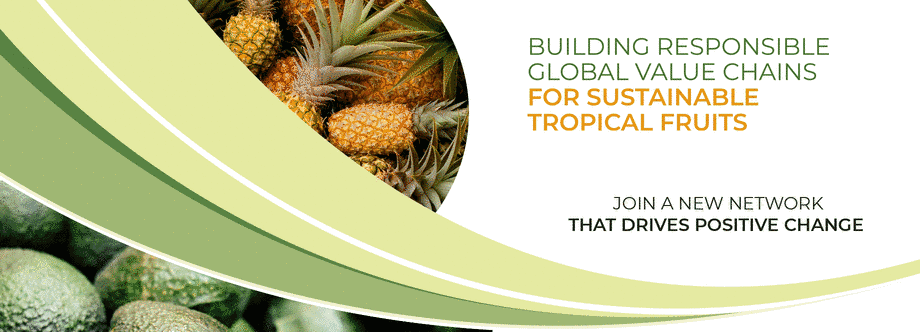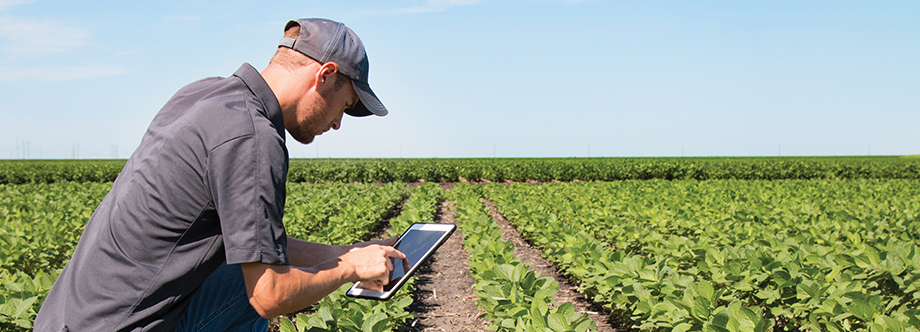The OECD-FAO Advisory Group (AG) on Responsible Agricultural Supply Chains is an informal multistakeholder group of over 50 experts from governments, multinational enterprises, small- and medium-sized enterprises, business associations, investors, multistakeholder initiatives, auditing firms, standards and certification groups, international organizations, trade unions, civil society organizations, and academia. Participation in the AG, including FAO Members, is voluntary and driven by each stakeholder's interest in addressing sustainability in agricultural supply chains.
The AG meets three times annually to discuss global challenges and solutions concerning responsible business conduct (RBC) and the uptake of the OECD-FAO Guidance for Responsible Agricultural Supply Chains. The expertise of AG members is leveraged through dialogue and discussion on preidentified topics for each meeting. Examples of discussion topics in AG meetings include the use of technology to reduce adverse developmental impacts in global production and trade, sustainability-driven legislation on risk-based due diligence, and salient thematic issues in commodity sourcing, including deforestation and child labour.
The AG applies an informal governance structure to aid dialogue and cooperation among members. At present, the Kingdom of the Netherlands is the chair of the AG and is supported by three co-chairs, the Food and Land Use Coalition of the World Resources Institute (WRI), the International Finance Corporation (IFC) and the World Business Council for Sustainable Development (WBCSD).
The AG developed from a multistakeholder advisory group that was established to guide the drafting of the OECD-FAO Guidance. Since its launch, the Guidance has received widespread government and enterprise support, including endorsements by 64 agricultural ministers at the Global Forum for Food and Agriculture in 2023.
As part of its activities on global value chains and RBC in agriculture, FAO works with governments, businesses and other stakeholders to advance technical support and awareness concerning global sourcing and developmental impacts related to business and trade.
Publications
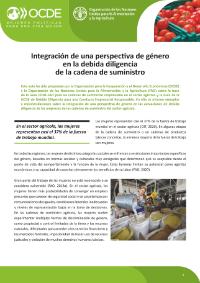
Integrating a gender perspective into supply chain due diligence
02/12/2021
The enterprise policy note on Integrating a gender perspective into supply chain due diligence is based on the OECD-FAO Guidance for Responsible Agricultural Supply Chains and presents how companies can integrate a gender perspective into due diligence actions. It provides practical examples of how companies operating in agricultural supply chains can tailor their responsible sourcing and risk-based due diligence efforts to support better development outcomes for women and girls. The policy note also helps companies understand how their due diligence efforts can contribute to implementing Sustainable Development Goal 5: Achieve gender equality and empowering all women and girls when considering gender impacts and business relationships with suppliers in agricultural supply chains.
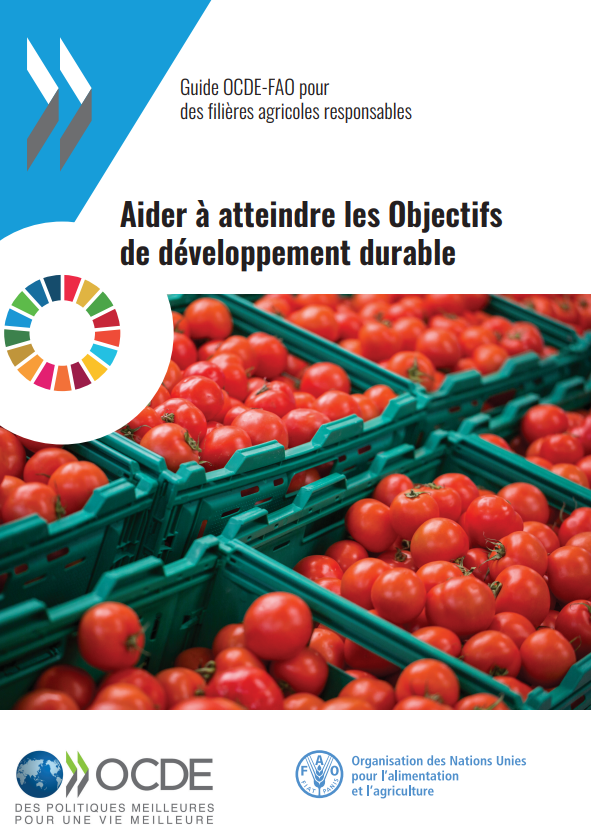
The OECD-FAO Guidance for Responsible Agricultural Supply Chains: Helping achieve the Sustainable Development Goals
15/04/2020
This publication describes how the risk-based due diligence framework recommended by the OECD-FAO Guidance for Responsible Agricultural Supply Chains (OECD-FAO Guidance) can help businesses to: identify and address the impacts of operations along their value chains and ensure that their actions and inactions are not undermining the SDGs, and; systematically manage risks and demonstrate their contribution to the SDGs in a measurable way.
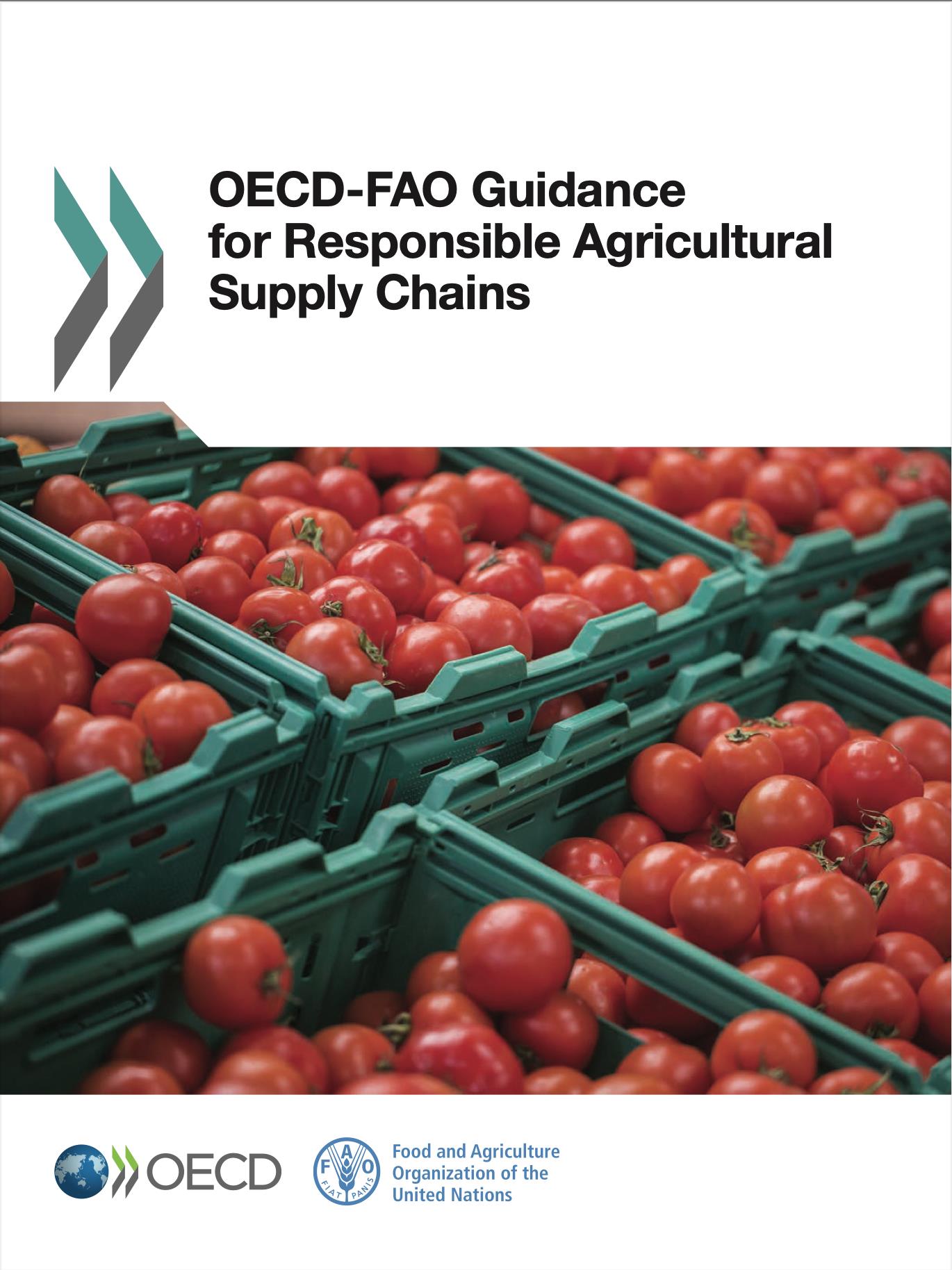
OECD-FAO Guidance for Responsible Agricultural Supply Chains
01/01/2016
FAO and the OECD have jointly developed this practical guidance to help enterprises observe existing standards of responsible business conduct along agricultural supply chains. The guidance is a summary of existing voluntary standards and principles, including the Principles for Responsible Investment in Agriculture and Food Systems (CFS RAI) endorsed by the CFS in 2014. It does not aim to create any new standards, nor does it seek to substitute existing ones.

